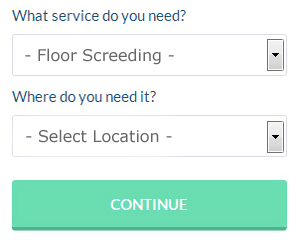Floor Screeding Honiton Devon (EX14): A professional floor screeder can help to install under floor heating, help with renovations or level an uneven or damaged floor on your Honiton property, when necessary. A screed is used to produce a smooth floor surface over a concrete sub-base and give a solid foundation for your choice of top flooring material. The screed is a crucial process to ensure a durable and quality finish to the entire floor structure.
FLOOR SCREEDING CONTRACTORS HONITON
Supplying the expertise and correct working methods to establish a perfect base for your flooring, a floor screeding company in Honiton can assist you no matter what size room you are remodeling. To establish the appropriate form of screed you require, and the best way to install it, they'll do a thorough evaluation of your project.
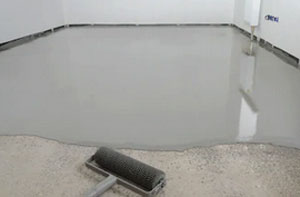
Your screeding specialist will also tell you if a structural engineer is needed for your project, to identify point loadings, load requirements and flex strength that your screed floor might need to conform with current building regulations and British Standards.
Working with a highly trained and qualified flooring specialist will guarantee you use the proper kind of screed for the room's intended usage to extend the lifetime of your flooring. The correct mix of screed and the way it is laid is also important to guarantee the final durability of your floor surface.
Ensure that you get at least two or three quotes for your Honiton based screeding project and also ask what standard of finish each estimate is for. The quotation could be based on what is called the SR, or Surface Regularity calculation. SR2 and SR3 will be more affordable options, but the finished floor surface might have errors and deviations, whilst SR1 guarantees a pretty much perfect quality of finish. Any error in the screeding (as might occur with SR2 or SR3) may cause problems in laying flooring owing to indentations, flat spots, ridges in the surface.
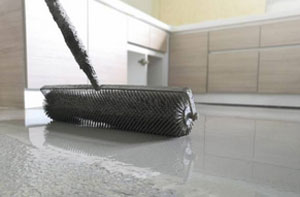
British Standards BS8204 lays down the regulations and guidelines that all Honiton screeding companies must follow, and if using specialist screeding solutions, (Cemfloor, Gypsol, Flowcrete etc), they must be accredited by the manufacturers as being trained and skilled in their use. This accreditation program illustrates a firm's training and ability in the usage of a manufacturer's merchandise.
Honiton commercial screeders might be involved in the screeding of floors in hospitals, warehouses, schools, hotels, shopping centres and factories.
TYPES OF SCREED
Standard Screeds - This is good for normal residential use and is a combination of sand and cement. This mix uses a 5 to 1 ratio of sand to cement. This 5:1 ratio standard screed will set hard at a rate of just 1mm per day after laying.
Liquid or Self-Levelling Screeds - When a high standard of finish is necessary this mixture of latex and cement is employed to produce SR1 level screed flooring. Primarily used to finish off a poor substrate level or damaged floor so as to lay a brand new flooring surface, such as vinyl planks over the top of it. The liquid screed can be poured to a thickness of only 1mm, but still provides a high strength base for a wide range of flooring finishes.
Advanced Drying and Fast Drying Screeds - If you need to move forward urgently with the work on account of time limitations, this screed dries more speedily than standard screeds. Drying at a rate of 3-7mm/day, determined by the mix, they are usually a fibre reinforced kind of screed and are perfect for projects which have tight deadlines.
Polymer Screeds - These provide an extremely high level of strength with a lower thickness. Owing to their different chemical compositions, these have varying curing times which can be verified by viewing manufacturer's own product guidelines.
Industrial and Heavy Duty Screed - Made for maximum durability and strength on floors where traffic is expected to be high or specific loading of the floor base is needed.
Fibre Reinforced Screed - The expert's choice for residential use over the top of underfloor heating. The special fibres in this screed improve overall durability and strength while also safeguarding against thermal cracking and shrinkage. It sets at the same rate as a standard screed of one millimetre per day.
SCREEDING PREPARATION AND INSTALLATION
Preparation is essential for a top quality screed surface that will be durable and hard wearing. It's vital that any contaminants such as oil, grease, paint or loose debris is eliminated from the floor surface before laying any screed, since these can affect the adhesion process that a good quality screed demands.
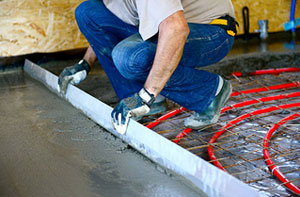
If cleansing products were used it is crucial to remove any traces of soap, detergent etc, and allow the floor surface to dry naturally. At this stage any cracks need to be repaired since these can travel up through the laid screed and be reflected in the finished surface. A reputable Honiton screeding specialist will pick up on these problems during a site survey and ensure all preparations are complete before moving on to the next stages of the screeding process.
A DPM (damp proof membrane) will be installed after the preparation work has been finished to prevent ground dampness affecting the flooring materials and screeding. There could be 2 or 3 layers of varying thickness polythene to act as barriers between the screed and the insulation layer.
If the area is susceptible to radon then another barrier is essential to prevent this harmful gas from entering from the ground. An airtight membrane could be suitable in places with low levels of radon, however in more severe situations there may need to be a more sophisticated ventilation and extraction system to take away any ground penetrating radon gas.
Once the base has been prepared and all DPMs installed, a primer or sealant is then put on. These primers and sealers will make certain the screed bonds successfully to the base and help to achieve a good quality finished floor. These products require experienced technicians to apply them in the right ratios by using tailor-made equipment, such as airless sprays.
If required, this is the time that under floor heating can be installed and laid out in the correct way. The wires and heating pipes are securely attached to insulation panels to prevent any movement and make certain they're laid in the correct position. When professionally installed an underfloor heating system is an effective way to warm a room and good quality screeding will retain its heat, generating an even level of warmth across the floor.
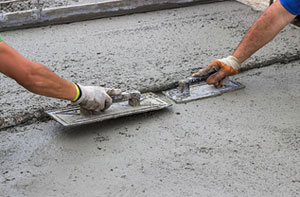
If you aren't installing under floor heating the screed will now be prepared in situ and laid. The requirements of the room will determine the kind of screeding used. For quick drying and advanced screeds there'll be at least a twenty four hour delay before it is able to be walked on, and a further 3 days minimum before any flooring material can be fitted. This timescale is increased for heavy duty and standard screeds and the manufacture's guidelines should be followed to the letter to produce the optimal finish and longevity of the floor.
Once the screed has solidified it can be quality checked to verify the SR standard. Using a 2 mtr straight-edge the floor surface is examined for any ridges, dips and deviations in the screed surface.
- SR1 - SR1 is the best specification and permits just 3mm of deviation from the straight-edge.
- SR2 - SR2 is the classification for normal standard floors in industrial and commercial projects and can deviate from the straight-edge by up to five millimetres.
- SR3 - For a utility area or room where the finish is relatively immaterial SR3 is the standard and should have a deviation measurement of 10mm or less.
If your screed has been installed with specific load bearing requirements in mind then a structural engineer is going to be required to carry out the tests. This assessment will ascertain the strength of the screeding and the suitability for its intended use. This should include a "drop hammer test" which records specific data on the strength and flexibility of the screed. Only certified structural engineers observing the BS8204 guidelines are allowed to conduct these testing and sign off on the structural integrity of screed flooring. (Tags: Screeding Honiton, Floor Screed Honiton, Floor Screeding Honiton, Floor Screeding Services Honiton).
Screeding services are available in Honiton and also nearby in: Colliton, Springfield, Feniton, Northleigh, Cotleigh, Wilmington, Awliscombe, Farway, Offwell, Combe Raleigh, Broadhembury, Luppit, Church Green, Putts Corner, Weston, Dunkeswell, and in these postcodes EX14 1AB, EX14 1FL, EX14 1RD, EX14 1AL, EX14 1NE, EX14 1DN, EX14 1PZ, EX14 1DQ, EX14 1DT, and EX14 1EF. Local Honiton floor screeders will likely have the telephone code 01404 and the postcode EX14. Checking this will guarantee you are accessing local screeding. Honiton homeowners can benefit from these and numerous other related services. Home and property owners in need of floor screeding estimates can just click on the "Quote" banner provided.
Latex Screeding
When a certain degree of flexibility is required in the surface of a floor you may find that the employment of a latex self-levelling screeding will be an advantage. A latex floor screed comes in two parts, a bag and a bottle, with the bag containing a cement based compound, and a bottle that contains a liquid latex component. Latex screeds are more flexible and quicker drying than standard screeds, as the water which is normally used is exchanged for the latex liquid.
This latex product is used for levelling sub-floors in advance of the laying of the final decorative surface. This is suitable for use on substrate of asphalt, concrete, stone tiles, wood and sand/cement, to give a smooth, resilient surface that is ideal for the application of flooring adhesives. If there happens to be any movement in the subfloor this type of screeding will produce a crack-free, flexible finish on which you can lay your chosen floor coverings.
When using a "floating" screed, for example when a screed is being laid on the top of a layer of either thermal or acoustic insulation, thicknesses of 50-75mm may be necessary, and latex flooring screeds aren't appropriate for this purpose.
What Does Screeding Do?
In construction projects, screeding fulfills several crucial roles:
- Subfloor Corrections.
- Surface Protection.
- Compatibility with Floor Finishes.
- Stability and Structural Integrity.
- Levelling and Smoothing.
- Even Load Distribution.
- Support for Underfloor Heating Systems.
- Improving Thermal and Sound Insulation.
Essentially, the creation of a level, stable and durable floor surface is significantly influenced by the role of screeding. It guarantees a solid foundation for the floor finish, enabling it to maintain its quality and aesthetics and endure the demands of daily use over an extended period.
Screed Reinforcement
Improving the durability and strength of concrete screeds can be achieved by using screed reinforcement. Applying thin, flat layers of concrete to a base layer is the method used to create level surfaces, which are called screeds. As flooring, they are frequently utilised in building projects, but they can also serve as a finishing layer for walls and ceilings.
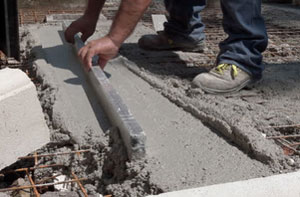
Embedding reinforcement materials, like steel mesh, fibres or wire, into the screed mixture during installation is done to prevent cracking and enhance strength. The reinforcement helps to distribute the load and weight of the surface evenly, while also improving its resistance to abrasion, thermal changes and impact.
Load capacity, thickness and finish are factors that influence the choice of screed reinforcement material for a project, which can vary depending on particular requirements. By utilizing screed reinforcement, screeding specialists can guarantee that their projects will provide a high-quality and functional surface that will last for years to come.
Granolithic Screeding Honiton
Granolithic screeding refers to a type of flooring that consists of a mixture of aggregate, cement and sand. It is applied in a relatively thin layer and then smoothed to provide a hard-wearing, durable and seamless surface. It is often used in public, commercial and industrial buildings where heavy traffic is expected.
This technique is commonly used in industrial and commercial buildings, high-traffic residential areas, and spaces that require abrasion and chemical resistance. The resulting surface is easy to clean, durable, and provides the ideal base for other flooring products.
Granolithic screeding is typically applied over a concrete sub-base, and the surface is normally treated with a curing compound to make sure it sets correctly. As soon as it has cured, it creates a seamless floor with a smooth, hard surface that is resistant to wear. It's also highly resistant to water and chemicals, which makes it perfect for use in environments where there is a chance of spills or exposure to harmful materials.... READ MORE.
Related Tasks

There is a variety of work that can be conducted by your local Honiton floor screeder including coloured floor screeding Honiton, flow screeding, smoothing compounds, fast drying or accelerated floor screeds, decorative floor screeding Honiton, garage floor screeding Honiton, waterproof floor screeding, concrete screeds, floor screed testing, screed surveys & testing, floor screeding quotes, sand and cement screeds, floor levelling, unbonded screed, floor insulation, underfloor heating screeds in Honiton, floor restoration, bonded concrete screeding, acid etching concrete Honiton, sand screeds in Honiton, screed floor removal, polished screeding, floor preparation services, screed flooring, monolithic screeding Honiton, thin bed floor screeding Honiton, basement screeding in Honiton, floor resurfacing, wet room floors, floor screeding, floor screed repairs, subfloor repair, floor screeding tools Honiton, self-levelling floor screeding, commercial floor screeding, and more floor screeding tasks. These are just a small portion of the tasks that are handled by those installing floor screeding. Honiton specialists will let you know their whole range of services.
Tools Required by a Floor Screeder
- Trowel
- Floor Profile
- Dappling Bar
- Spade
- Tape Measure
- Heavy Duty Spirit Level
- Float
- Wheelbarrow
- Straight Edge
- Knee Protectors
- Gloves
Floor Screeding Near Honiton
Also find: Offwell floor screeding, Dunkeswell floor screeding, Colliton floor screeding, Northleigh floor screeding, Feniton floor screeding, Wilmington floor screeding, Putts Corner floor screeding, Luppit floor screeding, Springfield floor screeding, Church Green floor screeding, Farway floor screeding, Cotleigh floor screeding, Weston floor screeding, Combe Raleigh floor screeding, Broadhembury floor screeding, Awliscombe floor screeding and more. The majority of these towns and villages are catered for by firms who do screeding. These experienced specialists possess the knowledge and expertise necessary to deliver top-notch flooring services. They're experts in screeding, ensuring that the project is executed to the highest standards, whether it’s for domestic or commercial properties. Local home and business owners can get screeding quotations by clicking here.
Floor Screeding Services Honiton
- Screeding Services
- Polished Screed Floors
- Floor Insulation
- Underfloor Heating Installation
- Liquid Screeds
- Cheap Floor Screeding
- Screed Calculator Service
- Commercial Screeding
- Floor Levelling
- Screed Reinforcement
- Residential Screeding
- Screeding Advice
- Fibre Reinforced Screeding
- Fast-Dry Floor Screeding
 Floor Screeding Honiton
Floor Screeding Honiton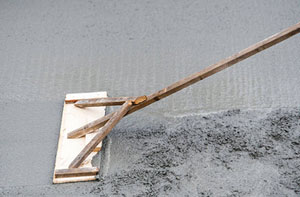 Floor Screed Near Honiton
Floor Screed Near Honiton Floor Screeders Honiton
Floor Screeders HonitonHoniton Screeding Jobs: Find screeding jobs near Honiton by clicking here: Honiton Screeding Jobs
More: Flooring Contractors, Floor Levelling, Screeding, Polished Screeding, Cheap Floor Screeding, Decorative Screeding, Floor Screeders, Screeding Contractors, Floor Levelling, Flooring Contractors, Screeding Contractors, Screed Reinforcement, Flooring Contractors, Screeding Services, Commercial Screeding, Coloured Screeding, Screed Floors, Screed Reinforcement, Polished Screeding, Residential Screeding, Floor Levelling Services, Polished Screeding, Coloured Screeding, Decorative Screeding, Floor Levelling Services, Screed Flooring, Floor Levelling Services, Self-Levelling Screeds, Coloured Screeding, Decorative Screeding, Floor Levelling, Floor Screeders, Screed Floors, Screeding, Concrete Driveway Contractors, Driveways, Concrete Driveways.
If you're interested in local Honiton information look here
Floor screeding in EX14 area, and dialling code 01404.
Floor Levelling Services Honiton - Industrial Screeding Honiton - Self-Levelling Screeding Honiton - Floor Screeding Contractors Honiton - Floor Screeding Near Me - Screeding Services Honiton - Fast-Dry Screeding Honiton - Screeding Quotes Honiton - Residential Screeding Honiton




